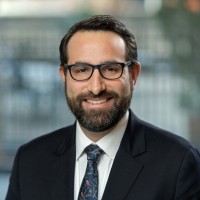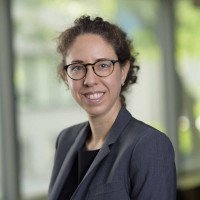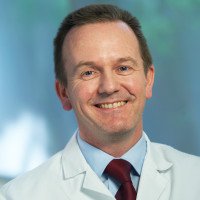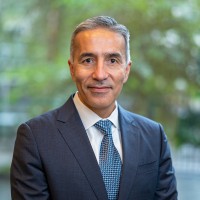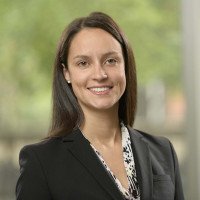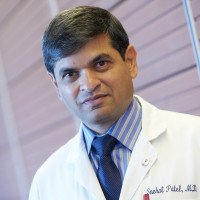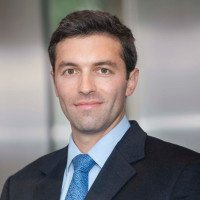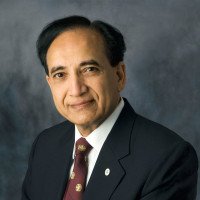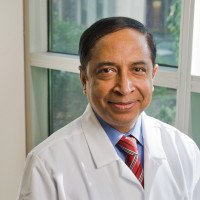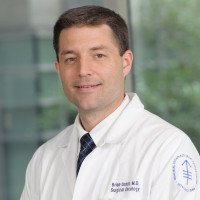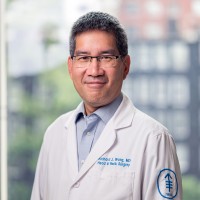The Head and Neck Service at Memorial Sloan Kettering Cancer Center (MSK) offers three fellowship training programs:
- One-year clinical fellowship in head and neck oncologic surgery.
- One-year clinical fellowship in oncologic and microvascular reconstructive head and neck surgery.
- Three-year combined clinical surgery and translational research fellowship in head and neck oncology.
Training in head and neck oncologic surgery
Development of Head and Neck Surgery & Oncology as a specialty
MSK’s advanced clinical fellowship in head and neck surgery and oncology is the largest in North America and has trained more surgeons and leaders in head and neck oncology than any other training program in the world.
Our fellowship program provides intensive, hands-on training in complex head and neck oncologic surgery, minimally invasive techniques, and microvascular reconstruction (see below). Oncologic (ablative) surgical training includes composite resection of tumors of the oral cavity and oropharynx, craniofacial resection of sinonasal tumors, excision of advanced skin cancers, salivary gland tumors, early and advanced laryngeal and hypopharyngeal cancers, parapharyngeal space tumors, advanced thyroid cancers, Trans Oral Robotic Surgery (TORS), Transoral Laser Microsurgery (TLM), and endoscopic skull base tumor surgery.
In recent years, the major components of our fellows’ operative volume have been:
- Thyroid, 25%
- Oral cavity, 15%
- Neck dissection, 15%
- Endoscopic/robotic, 10%
- Complex cutaneous, 10%
- Salivary, 5-10%
- Skull base, 5-10%
We offer the option of integrating an intense period of reconstructive free flap training for interested applicants, through a dedicated microsurgery rotation on the Plastic and Reconstructive Surgical Service (see section below for details).
For fellows who concentrate on oncologic/ablative surgical training, the clinical rotation consists of a 12-month period wherein fellows are responsible for preoperative and postoperative patient care and are involved in surgical operations under the direction of the attending surgeons. Each fellow performs 500-600 procedures during the year of clinical rotation, working with 13 fellowship-trained head and neck surgeons.
Fellows interface with a multidisciplinary team of physicians and other professionals specializing in head and neck oncology to ensure the optimal treatment for each patient. Our integrated disease management team (DMT) consists of head and neck surgeons, plastic and reconstructive surgeons, neurosurgeons, medical oncologists, radiation oncologists, maxillofacial prosthodontists, pathologists, radiologists, basic scientists, speech and voice therapists, and our dedicated nursing staff. Fellows attend a weekly teaching conference, present at a weekly tumor board conference, regular meetings with the program director, and are supported with a full complement of clinical research assistants to assist with clinical research projects.
Fellows have three weeks of vacation time annually and supported conference travel (at a minimum, two academic conferences and one TORS/TLM course per year). MSK fellow salaries are determined by PGY level and range from $106,000 to $130,000 annually, with additional stipends provided.
There is full-time nurse practitioner (NP)/physician assistant (PA) coverage for inpatients (five NPs/PAs). Six PAs assist in the operating room, clinic, and with floor work. Fellows assist in the instruction of a full team of rotating residents from four local residency programs.
Training in head and neck microvascular surgery (12 months)
We offer an advanced training program in head and neck oncologic surgery and microvascular reconstructive surgery that offers exceptional exposure to the highest volume of complex oncologic and reconstructive cases. The combined fellowship is structured as a one year fellowship, and is intended for candidates who have had prior exposure to microvascular reconstructive surgery in residency training.
Microvascular training is an integrated experience with MSK’s Plastic and Reconstructive Surgical Service, comprised of surgeons who together perform more than 900 microvascular free tissue transfer operations for cancer reconstruction, of which over 300 cases are for head and neck reconstruction, annually.
The combined fellow will spend half of their fellowship as a fully credentialed microsurgery fellow on the Plastic and Reconstructive Surgical Service, training with world-renowned leaders in reconstructive microsurgery, completing two instructional microvascular courses, and participating in 90 to 110 microvascular cases. The curriculum of this fellowship has been designed by the Head and Neck Service and the Plastic and Reconstructive Surgical Service to include operative and clinical experience tailored to highlight advanced skills for head and neck reconstruction.
This is a unique fellowship that has been designed to provide head and neck surgical fellows with a large volume of microsurgical training from the busiest cancer reconstructive surgery service in the world. MSK’s Plastic and Reconstructive Surgical Service performs 3-5 free flap surgical procedures every day.
The combined fellowship program provides intense, highly-focused training and is designed to prepare surgeons to take on the reconstruction of both routine head and neck defects (e.g., workhorse flaps, virtual surgical planning for fibula flap reconstruction with dental implants, facial reanimation), and more complex defects and reconstructive problems that are well beyond the standard armamentarium of head and neck reconstruction (e.g., experience harvesting omentum free flaps for skull base reconstruction, free jejunum for extended pharyngoesophageal defects, rectus flaps, scapular system flaps, lymphatic reconstruction via ultramicrosurgery, superthin and adipofascial flaps, vessel-depleted necks, etc.).
Graduates of this combined training program are distinguished in their exceptional comfort with complex perforator dissection, novel flap designs, preparation of recipient vessels outside of the neck, and troubleshooting free flap complications — advanced techniques that are facilitated by being a member of the highest-volume reconstructive microsurgical service in the country, and by exposure to a large volume of challenging reconstructive defects from cancer surgery.
As microsurgery fellows, head and neck fellows have the opportunity to learn from full-time microsurgical attendings whose entire clinical practices are limited to cancer reconstruction, and to work and operate alongside colleagues who are microsurgery fellows, who bring their own training backgrounds and camaraderie with them. All non-microsurgical reconstructive cases are covered by PAs.
Applicants for the one-year combined program must have had some free flap harvest and microsurgical experience during residency training.
Training in translational research
MSK offers a three-year combined clinical research fellowship for fellows interested in translational research. This fellowship includes one clinical year on the Head and Neck Service and two years of full-time protected research under the mentorship of one of many cancer research principal investigators at MSK.
2018
Sundeep Alapati, Jacobi Medical Center, Albert Einstein College of Medicine
Serena Byrd, Summit Medical Group, New Jersey
Benzon Dy, Mayo Clinic, Rochester, Minnesota
Ashley Hay, NHS Lothian, Edinburgh, Scotland
Julie Kickbush, CancerCare Manitoba, Winnpeg, Canada
Rajarsi Mandal, Johns Hopkins University, Baltimore, Maryland
Rachel Giese, University of Texas Health Science Center, San Antonio, Texas
2019
James Wu, UCLA Health, Los Angeles, California
Shivangi Lohia, Henry Ford Health System, Detroit, Michigan
Laura Wang, The University of Sydney, Sydney, Australia
Martin Hanson, University of Queensland and Princess Alexandria Hospital, Brisbane, Australia
Hao Li, National University of Singapore Health System, Singapore
2020
Stephanie Flukes, Fiona Stanley Hospital, Perth, Australia
Natascha Putri, National Cancer Centre Singapore, Singapore
Sandra Rivera Beltran, Auxilio Mutuo Cancer Center, Puerto Rico
Panagiotis Asimakopoulos, Aberdeen Royal Infirmary, Abderdeen, Scotland
Kelly Moyer, University of Maryland
2021
Conall Fitzgerald, St James’s Hospital, Dublin
Mohammad Hararah, Sutter Health, Sacramento, California
Timothy McLean, Peter MacCallum Cancer Centre, Melbourne, Australia
Omar Mirza, NHS Preston, United Kingdom
Tony Richa, University of Nebraska, Omaha, Nebraska
2022
Ehab Alameer, Jazan Cancer Center, Jazan, Saudi Arabia
Joseph Lopez, AdventHealth, Orlando, Florida
Cristina Valero, Hospital de la Santa Creu i Sant Pau, Barcelona, Spain
Robbie Woods, Beaumont Hospital, Dublin, Ireland
2023
Max Kligerman, Emory University, Atlanta, Georgia
Britney Scott, Creighton University, Omaha, Nebraska
Samer Abou Rizk, SUNY Downstate and Maimonides Medical Center, Brooklyn, New York
Dean Page, St Vincent’s Hospital, Melbourne, Australia
2024
Prishanthi Divakar, Dartmouth Hitchcock Medical Center, Lebanon, NH
Helena Levyn, Montefiore Einstein, New York, NY
Kenric Tam, Memorial Sloan Kettering Cancer Center, New York, NY
Szymon Mikulski, National Cancer Centere Singapore
Amit Ritter, Rabin Medical Center, Israel
Ryan Instrum, Otolaryngology-HNS residency at Western University, Canada
Fergal Kavanagh, Otolaryngology-HNS residency at Royal College of Surgeons, Dublin, Ireland
Dan Scholfield, Otolaryngology-HNS residency at Charing Cross Hospital, United Kingdom
Adam Scheel, Otolaryngology-HNS residency at Helios Hospital Bad Saarow, Germany
Farideh Hosseinzadeh, Otolaryngology-HNS residency at Iran Univ of Med Science
Anthony Noor, Otolaryngology-HNS residency at St Vincents Hospital, Australia
Deadline
Deadlines for receipt of matching applications and interview dates are determined annually — please see the American Head and Neck Society (AHNS) website for guidance. Interviews for AHNS match-eligible candidates will generally take place in April or May. International applicants applying outside of the match should submit applications by January 15.
Eligibility— North American and AHNS match applicants
For North American residency graduates, we participate in the American Head and Neck Society (AHNS) match program. The MSK fellowship program is accredited by the AHNS. Please see the AHNS website for application requirements and important dates. We welcome applications from surgeons with backgrounds in otolaryngology, general surgery, or plastic surgery, and regularly train fellows from all three specialties.
Some international applicants may also be eligible to apply through the AHNS match.
Eligibility— international (IFHNS), non-match-eligible, and off-cycle applicants
Applicants in several categories are able to apply for consideration to MSK directly.
We welcome applicants who are international residency graduates. For international applicants who are either not AHNS match-eligible, or who are choosing to apply under the auspices of the International Federation of Head and Neck Oncologic Societies (IFHNOS) International Fellowship in Head and Neck Surgery, or another international training organization, please note that applications must be received by January 15 for interviews that are generally in February, and consideration for training that would start the following year.
We are a founding member of the IFHNOS-sponsored international fellowship program and are accredited by IFHNOS, and as part of our commitment to global surgical training, reserve fellowship training positions for IFHNOS fellows. We consider direct applications from international applicants who have been, or who plan to be, associated with the IFHNOS fellowship program. International applicants must hold ECFMG certification and be visa-eligible, which generally requires completion of USMLE Steps 1, 2CS, 2CK, and 3. Applicants who have started the USMLE exam process (having taken at least Step 1) and who do not yet hold ECFMG certification are considered on a case-by-case basis.
We do sometimes consider off-cycle applications for applicants from international or domestic backgrounds who are not applying through the AHNS match because they need to start their training off-cycle (e.g., not on July 1 of the following year).
Applications from trainees with an oral maxillofacial surgery background are also welcomed. As with trainees from other surgical specialties, oral maxillofacial surgery applicants must have completed a minimum of five years of relevant clinical surgical residency and/or fellowship training, and must hold a medical degree and have ECFMG certification (if applying from outside the US/Canada).
International and non-match applicants may direct their questions about eligibility and applications to the surgical education office (details below).
Number of Positions
3-5 per year
How to Apply
Eligible candidates should apply for the fellowship match in Head and Neck Surgical Oncology through the American Head and Neck Society (AHNS). To download an application and match information, visit www.ahns.info.
International, non-match, and other candidates are encouraged to apply directly to the MSK program by emailing the following items to [email protected]:
- Memorial Hospital Graduate Staff Application form
- ECFMG full certification: Applicants must have completed USMLE Steps 1, 2CK, and 2CS prior to submitting an application to our program
- Current CV
- Copy of MD diploma (with translation, if necessary)
- Personal statement: This should include a description of the candidate’s personal qualifications and motivation for applying to the program, as well as a detailed professional plan to return to his or her home country upon completion of training
- Three letters of recommendation addressed to Dr. Luc G. T. Morris. One of these letters must be from the department chairman
If any of these requirements are not met or are incomplete upon submission, the application will not be processed.
